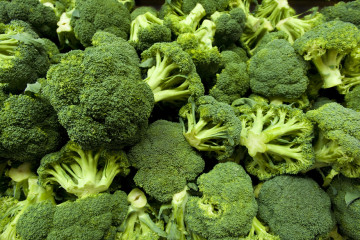Examining the Health Benefits of Cauliflower

Cauliflower is a vegetable which is in the same family as broccoli, collard green’s and cabbage. While its edible portion may appear much like broccoli, the primary difference is that cauliflower does not contain any flowers. Although the whole plant can be consumed, it is most common to eat the white buds. These is known as the “curd”. This plant has been eaten since at least the sixth century BCE; largely due to its ease of cultivation. In modern times, cauliflower is enjoyed by millions around the world. It can be prepared in various ways while some still enjoy consuming the plant raw. There are also numerous health benefits of cauliflower that are worth examining in some detail.
Vitamin and Mineral Content
Massive amounts of vitamins and minerals are found in most vegetables and the same holds true for cauliflower. Surprisingly, the levels of vitamin C are extremely high; more than 77 percent of the daily intake can be found within this unique plant. However, the benefits do not end here. Some of the other substances which are encountered in abundance include:
- Vitamin K
- Protein
- Thiamine
- Riboflavin
- Magnesium
Other minerals found in trace amounts are phosphorous, niacin, pantothenic acid, manganese and zinc. B-complex vitamins are specifically prevalent in the curd of this plant. These can help to provide large amounts of energy throughout the day.
Brain Health
Cauliflower is known as a “brain food”. This has much to do with significant amounts of a substance known as choline (within the B-complex profile). Choline boosts brain functions, increases alertness and even helps to positively influence short-term memory. There is also mounting evidence to support that choline could play an active role in the prevention of age-related disorders such as Alzheimer’s disease and dementia.
Whole-Body Detoxification
One of the other health benefits of cauliflower is its ability to act as a natural detoxifying agent. This is highly related to the sulfur compounds found within and the antioxidants present. As toxins are some of the main causes for a host of preventable ailments and conditions, this action can help to protect the body against a prolonged buildup of such foreign substances. Of course, such toxins are accepted to play a significant role in the formation of cancerous cells.
Effects Upon the Digestive System
Cauliflower is accepted as being one of the many vegetables which promote a healthy digestive tract. This is once again caused by the compound sulforaphane that was mentioned earlier. It is thought that the sulfur within helps to protect the lining of the stomach. Also, a bacteria known as Helicobacter pylori can adversely affect the ability of the intestines to digest food. Sulforaphane helps to inhibit the growth of this bacteria. Therefore, an excellent side effect is that the body will be able to absorb more nutrients.
Phytonutrients
Finally, cauliflower is packed full of chemicals that are known as phytonutrients. These include kaempferol, rutin, cinnamic acid and quercetin. They all boast robust antioxidant properties and are involved in numerous processes that help to protect cells against, aging and other forms of damage. By blocking free radicals, the body will stay younger for longer.
It should now be clear to see that Cauliflower offers countless health benefits to individuals of all ages. While this vegetable may appear rather bland and have little outright taste, it cannot be denied that the substances present can drastically improve one’s lifestyle. Much like broccoli, it is best to steam cauliflower or consume it raw. This will enable the maximum amount of nutrients to be absorbed into the system.


